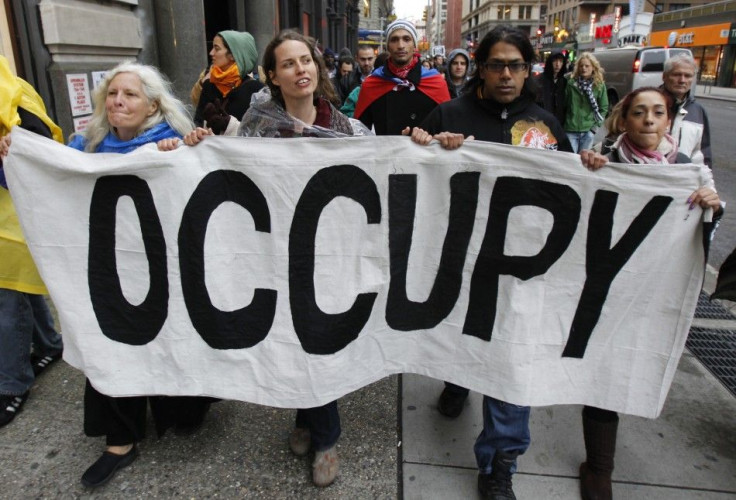House Democrat Introduces OCCUPIED Constitutional Amendment to Ban Corporate Money in Politics

U.S. Rep. Ted Deutch, D-Fla., a member of the House Judiciary Committee, introduced the first piece of legislation inspired by the Occupy Wall Street movement last week, proposing the addition of a new constitutional amendment that would ban corporate money in politics and end legal protection for corporate personhood.
Known as the Outlawing Corporate Cash Undermining the Public Interest in our Elections and Democracy (OCCUPIED) Amendment, it would overturn the Citizens United Supreme Court decision that awarded free speech rights, as guaranteed by the First Amendment of the U.S. Constitution, to corporations, as well as specifically state that free speech and other constitutional rights can only be guaranteed to natural persons.
Americans of all stripes agree that for far too long, corporations have occupied Washington and drowned out the voices of the people. I introduced the OCCUPIED Amendment because the days of corporate control of our democracy must end. It is time to return the nation's capital and our democracy to the people, Deutch said in a statement.
While there have been other proposals in recent weeks aiming to overturn the decision, Deutch's amendment would also reaffirm that corporations -- since they are formed under the laws of Congress and the states -- are subject to laws enacted to protect the environment, public health and other safeguards, as well as re-establish the power of Congress and the states to regulate campaign finance laws and effectively outlaw for-profit corporations' ability to contribute to campaign spending.
Unions and non-profit organizations will still be able to contribute to elections, Deutch told The Washington Post. The congressman added that Americans cannot wait for a legal decision to come to the same conclusion because there is every reason to believe the Supreme Court may well continue down this path and move beyond Citizens United and allow corporations to contribute to candidates directly.
Campaign Financing: Does It Undermine Democracy?
Deutch said Occupy Wall Street and its sister protests across the nation have brought campaign finance to the forefront of the national conversation, giving him hope that the OCCUPIED Amendment could gain some traction even though a similar proposal failed in 2010.
One thing that's been clear throughout the protests all across the country is that people are tired of a political system that they believe doesn't respond to their needs, that doesn't reflect the interests of the American people, and that caters to the corporations that have occupied Washington for far too long, he said.
The DISCLOSE Act, which would have overturned the Citizens United decision and banned U.S. corporations controlled by foreign governments as well as TARP recipients from contributing to political campaigns, passed in the House in 2010, but then faltered in the Senate. Earlier this month, U.S. Democratic Sens. Tom Udall of New Mexico and Michael Bennet of Colorado also introduced an additional amendment to reverse the Citizens United decision.
To add an amendment to the Constitution, both the House and Senate must pass the proposal with a two-thirds majority, which then must be ratified by three-fourths of the states. Although Article V of the Constitution also says an amendment can be proposed by a constitutional convention called for by two-thirds of state legislatures, that method has never been employed.
The 27th Amendment, the latest to be added to the Constitution, was ratified in 1992. The amendment, which prohibits any law that increases or decreases the salary of members of Congress from taking effect until the start of the next term of office, was initially submitted to the states for ratification in 1789.
© Copyright IBTimes 2024. All rights reserved.





















